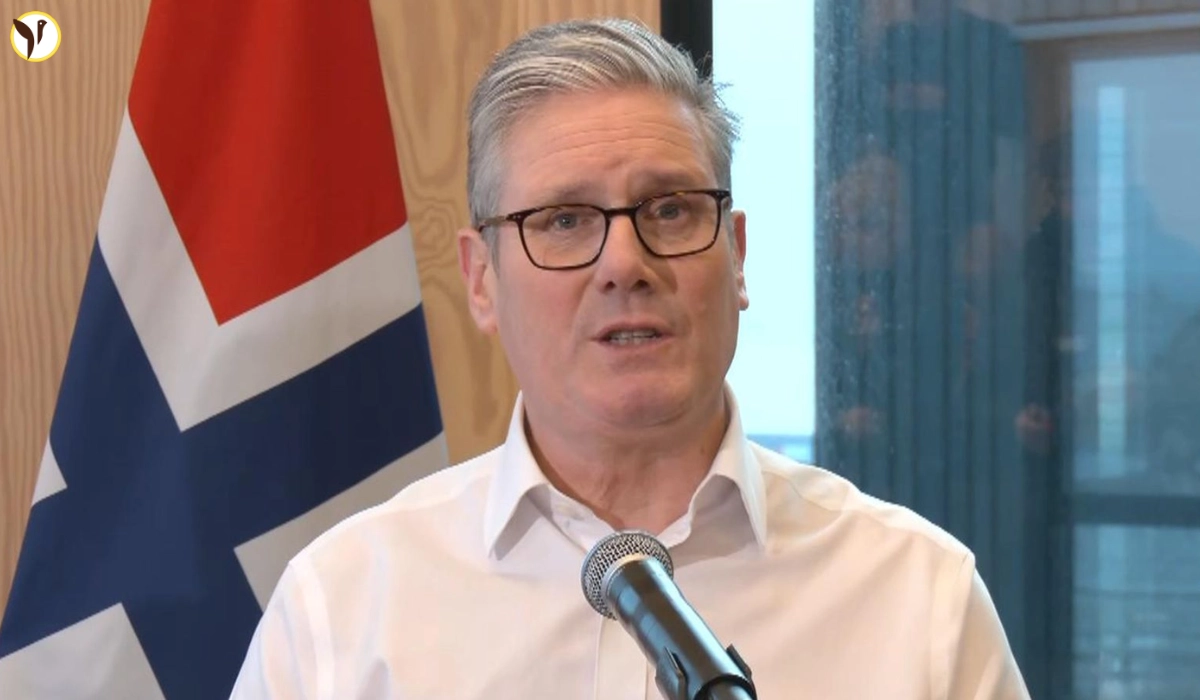Prime Minister Keir Starmer has announced a significant shift in the UK’s immigration policy, signaling a more strategic and results-based approach to issuing visas.
Speaking at the recent G7 summit in Italy, Starmer revealed plans to make visa access dependent on how cooperative a foreign country is in taking back migrants who enter the UK illegally and are later denied asylum.
This proposal comes at a time when the UK is facing increased pressure due to a spike in illegal immigration. Over 16,500 people have crossed the English Channel in small boats so far in 2025—marking a 45% rise compared to the same period last year. The sharp rise has intensified political and public demands for a stronger response.
Under the new approach, countries that do not cooperate in repatriating their nationals could face stricter visa requirements. In contrast, countries that support the UK’s deportation efforts may be rewarded with better visa access.
The UK already has return agreements with 11 countries, including India, Pakistan, Albania, Nigeria, and Iraq. These deals allow the UK to send back individuals whose asylum claims have been rejected.
Starmer believes that expanding this model could help control illegal migration more effectively. According to him, migration enforcement should not only be handled within the UK but also require direct engagement with the governments of migrants' origin countries.
By making visa access conditional, the UK can use its immigration system as a diplomatic tool.
This marks a notable shift in policy direction. Instead of relying solely on domestic enforcement or controversial third-country deportation plans like the Rwanda deal promoted by previous Conservative governments, Starmer’s plan focuses on improving international cooperation.
During the G7 summit, Starmer also spoke with leaders from France, Germany, and Italy. These talks centered on improving joint efforts to control migration routes before migrants reach the UK or mainland Europe.
The UK and France plan to coordinate more closely to intercept boats before they attempt Channel crossings, while Germany and Italy emphasized the need for stronger border checks in countries migrants travel through.
By introducing this transactional visa policy, the UK hopes to not only curb illegal migration but also encourage other nations to take greater responsibility for their citizens. Starmer stated that the current system isn’t working fast enough and that new solutions must be tried to bring migration levels under control.
Border Security Command to Lead UK’s New Migration Response
As part of the broader strategy to manage rising levels of illegal immigration, Prime Minister Starmer also announced the creation of a new “Border Security Command.”
This new unit is expected to serve as the backbone of the UK’s operational response to illegal migration, with a key focus on disrupting criminal networks and improving enforcement.
The command will include members from police services, immigration enforcement, and intelligence agencies, working together in a coordinated effort. Their job will be to identify and dismantle human smuggling operations that enable dangerous Channel crossings.
Starmer’s government believes that combining these different agencies will lead to quicker, more effective responses, especially in high-risk areas along the coast.
The Prime Minister’s decision follows widespread public concern over the safety risks and financial burden posed by growing illegal arrivals. Many of those crossing the Channel do so in unsafe boats, often with the help of traffickers who charge high fees.
Starmer emphasized that breaking these criminal supply chains is essential to both saving lives and protecting UK borders.
At the same time, the government is reviewing other parts of the immigration system. One proposal being considered is to reduce the number of visas granted for low-skilled workers and international students. Supporters of this move say it could help lower overall immigration numbers. However, several business leaders and economic experts have voiced concerns.
They warn that such cuts could harm key sectors like agriculture, construction, healthcare, and renewable energy—industries that depend on migrant labor to fill jobs that locals often do not take.
Starmer is positioning his government as different from previous administrations by focusing on practical and enforceable solutions. He has made it clear that his government does not support expensive and controversial plans such as the Conservative-led proposal to deport asylum seekers to Rwanda.
Instead, he favors stronger partnerships with European allies and better enforcement within the UK.
The Prime Minister’s strategy represents an effort to balance the need for stronger border control with the realities of a global economy. By tying visa access to deportation cooperation, he is aiming to create an incentive system that encourages countries to take responsibility while preserving legitimate pathways for legal migration.
As this plan develops, it could have lasting effects on how the UK handles immigration. The government hopes this approach will reduce illegal migration, cut down on taxpayer costs, and rebuild public trust in the immigration system—all while maintaining positive international relations and economic stability.









